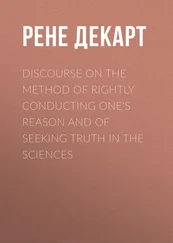I refuse to trust myself because my brother had to die before I finally understood what it means to be alive.
KRAMER IS FEELING euphoric. He puts away his pen and paper and thanks Mia for her assistance in promoting the common cause. He is grateful to her, he says, for entrusting to him a political weapon of mass destruction, and he knows she can count on him to put it to good use. When Mia asks what he means by common cause , he looks at her in astonishment: has she not realised that fate has brought the two of them together to undertake a joint mission of an unspecified nature? She would agree, would she not, that any system of government should assure itself periodically of its mandate to rule? And isn’t it time for the Method to test itself? To put the matter to a vote of confidence? In previous eras, governments struggling to assert their authority would call on parliament to dismiss them or come out in their support — isn’t this exactly the situation facing the Method? And perhaps Mia, by publicising her views on the system, could contribute towards securing the right result? In any case, he likes her apartment and hopes she was comfortable there.
As Mia shows him to the door, she wonders why he spoke of her apartment in the past tense. Should she think of her efforts as belonging to the first or the second category? On what basis should the category be decided? Whose perspective should she apply? When the door shuts behind him, she ceases to care.
Now she is lying in the arms of the ideal inamorata and drinking from the champagne bottle that Rosentreter left behind. Suddenly the ideal inamorata starts talking in the past tense as well.
‘I was moored on your shores for a while,’ she says. ‘You should be glad.’
‘I wasn’t friends with you; I was friends with your simulacrum,’ says Mia.
‘You’re being cynical.’
‘I’m being precise. I couldn’t love you properly — not the way that Moritz did. It’s always been hard to believe in your existence.’
‘You won’t have to any more.’
‘You’re leaving me, are you? Why?’ Mia passes her the bottle. She strokes the ideal inamorata’s forehead. The ideal inamorata keeps quiet. Her foot is tapping in time with a song that no one else can hear.
‘I’ve achieved my goal,’ she says at last. ‘Moritz’s final wish was for you to believe him, for you to understand what happened. For you to think of him in the right way.’
‘Do you know what I told him? I want to be the ground that trembles beneath your feet when the vengeance of the gods is visited upon you . Fate likes us to keep our promises, I suppose.’
‘I didn’t think it would be this hard for me to leave you.’ The ideal inamorata runs her hand lightly through Mia’s hair. ‘I’m concerned for you, Mia.’
‘You needn’t worry: technically, I’m a saint.’
‘Martyrdom comes before sainthood.’
‘I was never much interested in getting old — who wants to spend their time waiting for the next meal? Oh, come on!’ she says as the ideal inamorata withdraws her hand. ‘I was joking!’
‘I don’t have a sense of humour. There is no sentence so foolish that a human couldn’t say it in all seriousness.’
Mia pulls the ideal inamorata towards her and kisses her on the lips. ‘We have no idea how many times a day the world avoids the apocalypse. When you see Moritz, tell him I love him. Or rather, tell him that a tree house is for pulling up the ladder, eating cherries until your stomach hurts, getting birds’ mess in your hair and still never wanting to come down. Will you tell him?’
‘I promise.’
Mia takes a deep breath as if she is about to start a long sentence that will reveal the answer to everything, but her mouth is open because she needs to yawn. In no time she is asleep.
SHE WAKES TO the noise of Method Defence breaking down her front door. Method Defence has no shortage of highly trained lock pickers with the ability to enter any building silently in a matter of seconds. When these people force their way into an apartment, they do so by choice. Three men storm into Mia’s living room: a small army, driven forward by the momentum of their attack. Mia is lying on the couch; she has only just opened her eyes. She stares, bewildered, at the invaders. In her arms is not the ideal inamorata, but a cushion.
She kicks the first invader in the stomach. The second she attacks with raised claws, aiming for his face. The nail of her index finger goes deep under the lower lid of his right eye. None of these men grasp that Mia isn’t protecting herself; she is defending the cushion with the ruthlessness of a lioness fighting for her newborn cub. The third manages to catch hold of her legs. Mia rears up and sinks her teeth into his neck, letting go only when she tastes blood. He cries out and smashes his fist into her forehead; she drops onto the sofa, dazed but not ready to surrender.
Not a word is spoken. There is no sorry to disturb you or please forgive the inconvenience . Mia’s living room isn’t the site of an arrest. This is a war, and maximum damage must be inflicted on the aggressors before they drag away their prey.
‘Rapists! Thieves!’
‘Marching in here with their dirty boots!’
‘Don’t be ridiculous, children! Look at their uniforms! It’s the Agency.’
The commotion can be heard throughout the building. It draws the neighbours in their dressing gowns up the stairs to Mia’s open door. On the other side of the door frame, a Method Defender has taken out a syringe and is waiting for his colleagues to restrain the demented woman. Blood is streaming from his nose and he sways unsteadily.
‘They’re taking Mia away.’
‘There must be some mistake.’
‘Mia is a heroine! It was in the papers!’
‘Frau Holl is our most cherished resident.’
Despite limited vision through his swollen right eye, the Method Defender sees his opportunity and acts. The syringe comes down into Mia’s upper arm.
‘No!’
‘It’s their job, Driss.’
‘It’s not our place to get involved.’
‘Driss, come back!’
Only when Mia’s body slackens are the Method Defenders able to tear the cushion from her grasp. The man with the bloody nose tosses aside the syringe and kicks the cushion. When the willowy Driss throws herself against him, he brushes her off with one hand. Driss collides with the door frame and sinks to the floor. The uniformed men step over her as they carry Mia away from the apartment.
‘DYNAMITE!’ SAYS ROSENTRETER.
‘Did you bring the mirror?’
Rosentreter rummages in his briefcase and pulls out a compact mirror. Mia leans towards the Plexiglas to examine her reflection. She is dressed in white paper overalls again. A large bruise adorns her forehead. Her lower lip is swollen, and one of her eyes looks red. In the mirror she catches the gaze of someone she knows. It isn’t hers, so it probably belongs to Moritz.
‘Great,’ says Mia. ‘Paper overalls, solitary confinement, a battered face. I couldn’t get closer to my brother than this.’
Rosentreter quickly puts away the mirror. ‘Your proclamation was pure dynamite. It’s why they came for you. A sign of weakness. They’re scared.’
‘What’s the charge?’
‘There is no charge, Mia. You’re on suicide watch.’
‘You can’t say they haven’t got a sense of humour. There’s nothing more frightening for the security forces than people who want to die. They can’t be controlled: they’re suicide killers.’
Читать дальше












